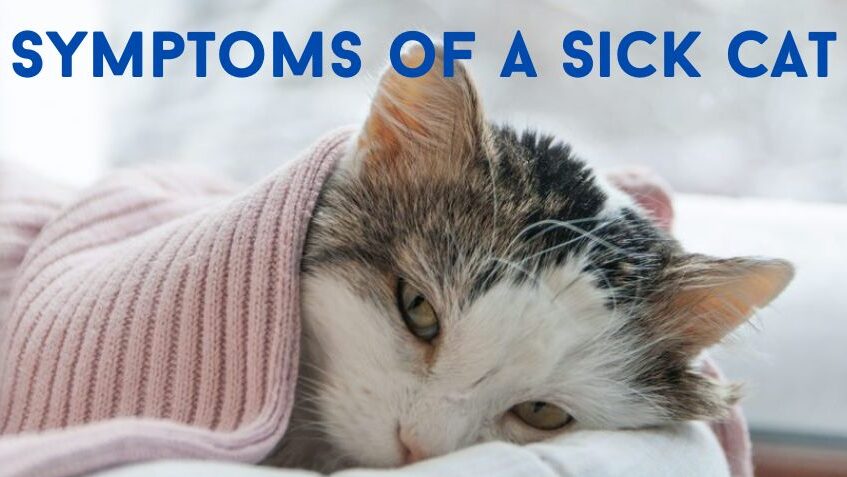Symptoms of a Sick Cat
Cats that are ill will usually show changes in overall appearance, energy level, sociability, coat appearance and/or amount of shedding, appetite, litterbox usage, breathing, or discharges from the eyes or nose. That’s why it’s critical to visit your vet as soon as possible if you notice any of these signs or symptoms:
- Sudden change in mood
- No inclination to play or appear lethargic
- Constricted or dilated pupils
- Much less or much more vocal than usual
- Rapid breathing or shortness of breath
- Noticeable weight loss or gain
- Sudden changes in appetite, drinking, or eating habits
- Vomiting or diarrhea
- Neglecting grooming or over-grooming
- Hiding
- Improper use of litter box
- Hair loss or skin irritation
- Bad breath
- Discharge from eyes or nose
- Wounds or swelling
- Limping or injuries
Knowing When Your Cat is Sick
You know your cat better than anyone else. Watch your pet for subtle changes in behavior that others may not notice and monitor any changes in your cat’s usual demeanor or body language. If something doesn’t seem right, schedule your cat for an examination, even if you don’t see any of the symptoms listed above.
Cats that are not feeling well may just look a little “off.” The cat might sit in a hunched position, might not move as gracefully as before, might not lift its head properly, might have a head tilt, or might carry its tail in a different way than normal. Sometimes there is not any one thing that stands out, but instead a variety of subtle changes.
Sick cats usually become withdrawn and may hide, although this does depend on the personality of the individual cat. Some cats become clingier or demanding of attention, while others just become cranky.
As a general rule, cats that are sick will have lower energy levels. The only thing you may notice is that your cat sleeps more, does not play as much, or is restless. With some diseases, especially hyperthyroidism, your cat’s energy level may actually seem to increase to the point of hyperactivity. Cats with hyperthyroidism often are restless at night and may suddenly begin howling or waking family members up.
Common Causes of Illness in Cats
Now that you know some signs that your cat may be sick, here are a few common illnesses that can develop in cats:
Is your cat drinking far more water than is typical? This could be a sign of kidney disease, diabetes, or thyroid issues.
Bad breath can indicate your cat is suffering from tooth pain or periodontal disease. Left untreated, dental disease in cats can lead to more serious problems such as heart, kidney, and liver conditions.
A sudden increased appetite can be a sign of inflammatory bowel disease, intestinal cancer, hyperthyroidism, or diabetes.
Have you noticed your cat is suddenly experiencing litter box issues? This could be a sign of anything from a urinary tract infection to kidney disease or bladder stones.
Breathing problems and reduced enthusiasm for play or activities can indicate an upper respiratory infection.
Arthritis or injuries can lead to a drop-off in your cat’s acrobatic activities.
What You Can Do If Your Cat is Sick
Your vet will provide diagnosis and treatment if your cat is exhibiting any unusual behaviors. Early detection and treatment of illnesses can help to prevent conditions from worsening or becoming life-threatening.
Cat illnesses or injuries often need urgent medical attention, surgery, or even emergency care. It is essential to seek professional veterinary advice as soon as possible. The sooner treatment begins, the sooner your furry friend will be acting more like themselves again.
You may also visit – https://www.facebook.com/angkopparasahayop




